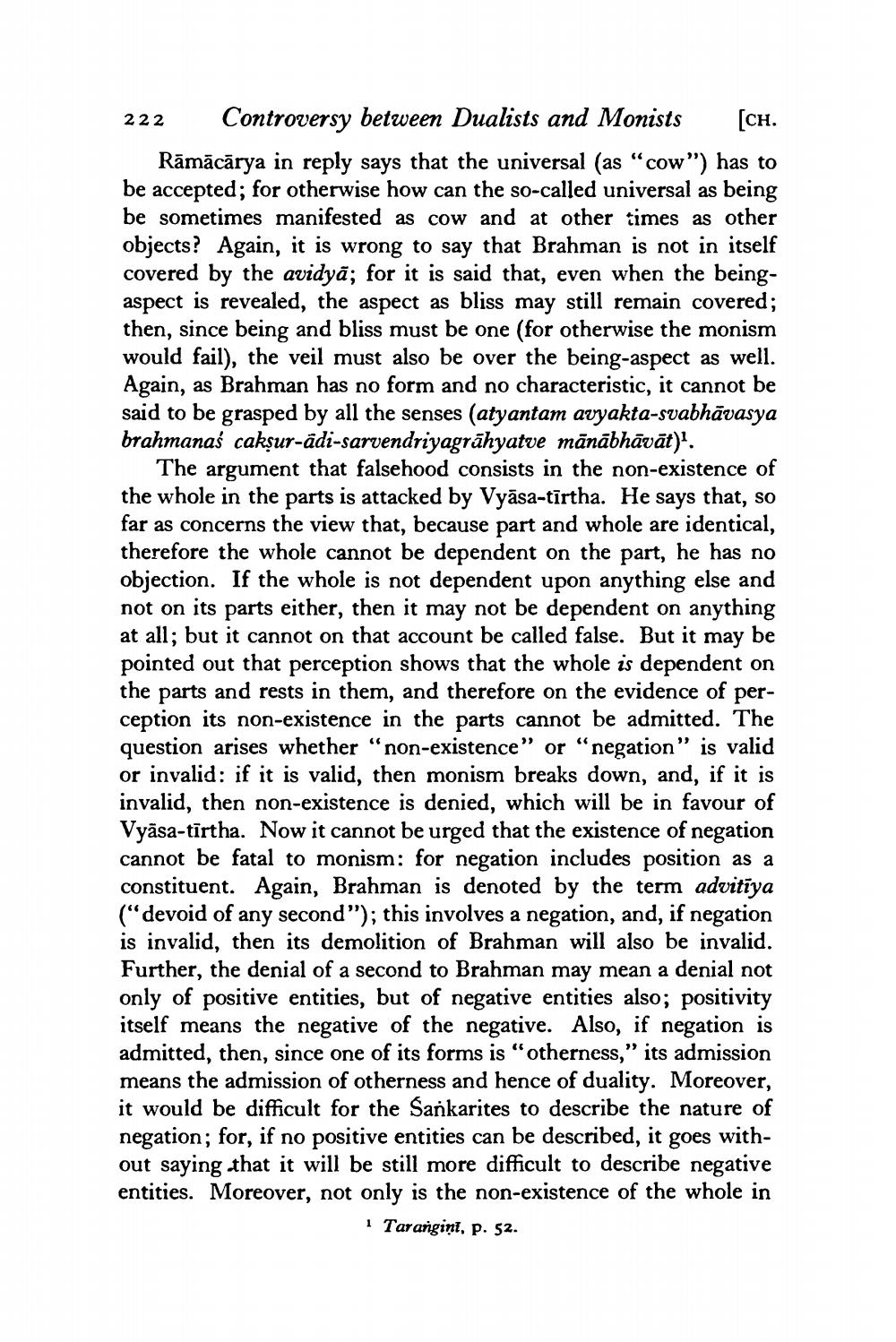________________
222 Controversy between Dualists and Monists [CH.
Rāmācārya in reply says that the universal (as “cow”) has to be accepted; for otherwise how can the so-called universal as being be sometimes manifested as cow and at other times as other objects? Again, it is wrong to say that Brahman is not in itself covered by the avidyā; for it is said that, even when the beingaspect is revealed, the aspect as bliss may still remain covered; then, since being and bliss must be one (for otherwise the monism would fail), the veil must also be over the being-aspect as well. Again, as Brahman has no form and no characteristic, it cannot be said to be grasped by all the senses (atyantam avyakta-svabhāvasya brahmanaś cakşur-adi-sarvendriyagrāhyatve mānābhāvāt)'.
The argument that falsehood consists in the non-existence of the whole in the parts is attacked by Vyāsa-tirtha. He says that, so far as concerns the view that, because part and whole are identical, therefore the whole cannot be dependent on the part, he has no objection. If the whole is not dependent upon anything else and not on its parts either, then it may not be dependent on anything at all; but it cannot on that account be called false. But it may be pointed out that perception shows that the whole is dependent on the parts and rests in them, and therefore on the evidence of perception its non-existence in the parts cannot be admitted. The question arises whether "non-existence” or “negation" is valid or invalid: if it is valid, then monism breaks down, and, if it is invalid, then non-existence is denied, which will be in favour of Vyāsa-tīrtha. Now it cannot be urged that the existence of negation cannot be fatal to monism: for negation includes position as a constituent. Again, Brahman is denoted by the term advitiya (“devoid of any second"); this involves a negation, and, if negation is invalid, then its demolition of Brahman will also be invalid. Further, the denial of a second to Brahman may mean a denial not only of positive entities, but of negative entities also; positivity itself means the negative of the negative. Also, if negation is admitted, then, since one of its forms is "otherness," its admission means the admission of otherness and hence of duality. Moreover, it would be difficult for the Sankarites to describe the nature of negation; for, if no positive entities can be described, it goes without saying that it will be still more difficult to describe negative entities. Moreover, not only is the non-existence of the whole in
i Tarangini, p. 52.




